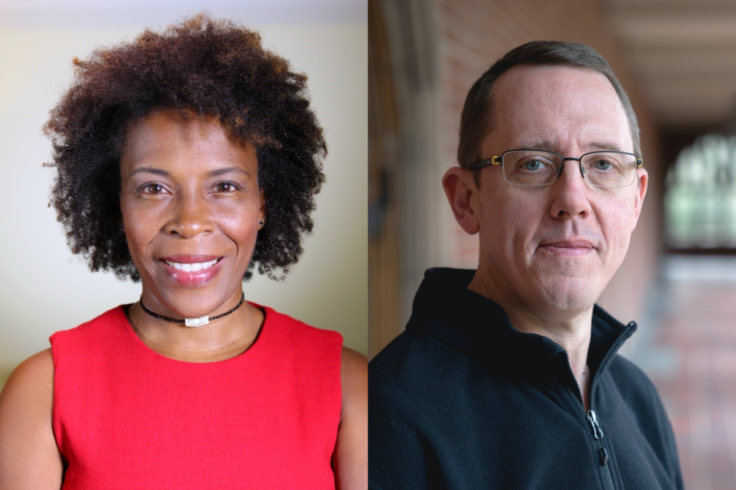Rap on Trial: Race, Lyrics, and Guilt in America
“Rap on Trial” is the term coined by the authors for the government’s use of rap lyrics and videos as criminal evidence to surveil, charge, detain, adjudicate and punish.
Andrea first encountered this tactic in the early 2000s when she was a criminal defense attorney. About five years later the issue landed back on her radar when she was researching connections between hip hop and the law. It was then that she realized the practice was more than just occasional and isolated, leading her in 2007 to publish her law review article entitled Poetic (In)Justice?
Ironically, Erik’s work began several years later thanks to the work of Eithne Quinn, a British scholar at the University of Manchester, who had begun working on cases in which grime (similar to rap) was being used as evidence in the UK. Suspecting that if the practice was occurring in the UK, it was likely happening in the U.S., Erik began looking. It quickly became clear that it was widespread, but he didn’t appreciate the full scope of the problem until he connected with Andrea, and the two teamed up to begin looking in earnest.
By 2012, it was clear that state and federal law enforcement and prosecutors nationwide were using rap evidence in every phase of the criminal justice process. Since then, Erik has served as an expert witness or consultant in more than cases involving rap lyrics as evidence. Andrea has trained defense attorneys, presented at law schools, and consulted on cases. Together they have identified hundreds of cases and suspect that thousands remain hidden from public view.
They wrote the book to call attention to this practice, which is a two-pronged attack on the Black community. It marginalizes and demonizes the most popular musical genre in America, denying it full recognition as a sophisticated, creative art form and silencing Black voices. At the same time, it facilitates mass incarceration.
They hope this book serves as a wake-up call, not only for hip hop fans, but also those who value free expression more broadly. They also hope it lays out effective ways to combat rap on trial.
Criminal defense attorneys need to be aware of the issue and how to fight it in court. Alongside litigation, they must work to draw public attention to the practice and the injustices it causes. Criminal defense attorneys can play a significant role in educating citizens, i.e., potential jurors, of the extent and perils of the practice.
They also call on legislatures nationwide to enact what they call “rap shield rules,” i.e., protections that rely on the First Amendment to prevent rap music, a form of expressive speech, from being used against artists to impose criminal penalties on them.
As for everyday citizens, they challenge them to vote for progressive prosecutors and judges who will curb this practice and work to eliminate racial disparities in the criminal justice system. Finally, they summon the rap music industry, urging it to get involved in supporting those individuals caught in the system because of rap music and attorneys fighting every day in the court system.
-Andrea Dennis and Erik Nielson, Authors of “Rap on Trial: Race, Lyrics, and Guilt in America”
Andrea Dennis and Erik Nielson are the Hugh M. Hefner First Amendment Award honorees for the book publishing category for their book “Rap on Trial: Race, Lyrics, and Guilt in America,” a groundbreaking exposé about the alarming use of rap lyrics as criminal evidence to convict and incarcerate young men of color.



